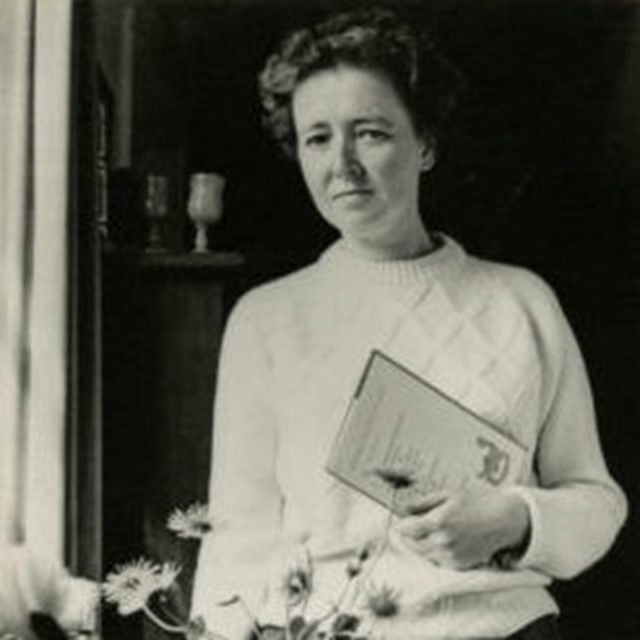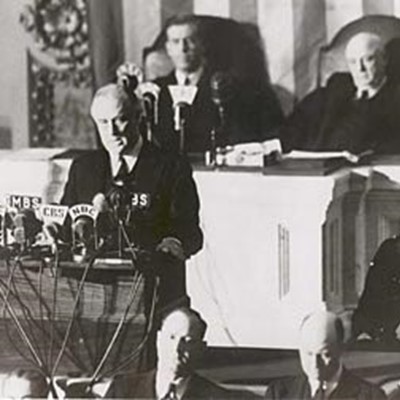
The Buckley School's founder believed that all public speakers should hone their presentation skills by reading poetry out loud. We keep that worthwhile practice alive by including a poem in our magazine each month for you to read aloud. Above, a portrait of the poet from the Elizabeth Jennings papers, Washington University Libraries.
"Sometimes I feel that an act of the imagination is more use than an act of faith."
– poet Elizabeth Jennings
Elizabeth Jennings was born in 1926 and spent most of her life in Oxford, England. From her teenage years on, Jennings struggled with physical and mental health problems. Poetry, she said, was an outlet for her.
Jennings is considered a major figure in British 20th century poetry and published 26 volumes of poetry in her lifetime. She was the sole female member of the Movement, a group of writers that included Kinglsey Amis and Philip Larkin, with a shared purpose of promoting traditional forms of poetry.
Despite her success as a poet, Jennings found it difficult to manage her life. She sought treatment for mental health and had financial problems as a result of illness. When honored by the queen in 1992, she appeared wearing an overcoat and worn out sneakers and was referred to by the tabloid press as the "bag lady of the sonnets." That description, unfortunately, appeared to have stuck.
Jennings died in 2001 at the age of 75. Seventeen years later, literary critic Dana Giola wrote of her:
Despite her worldly failures, her artistic career was a steady course of achievement. Jennings ranks among the finest British poets of the second half of the twentieth century. She is also England’s best Catholic poet since Gerard Manley Hopkins.
Below, a Jennings poem for you to read out loud.
The Enemies
Last night they came across the river and
Entered the city. Women were awake
With lights and food. They entertained the band,
Not asking what the men had come to take
Or what strange tongue they spoke
Or why they came so suddenly through the land.
Now in the morning all the town is filled
With stories of the swift and dark invasion;
The women say that not one stranger told
A reason for his coming. The intrusion
Was not for devastation:
Peace is apparent still on hearth and field.
Yet all the city is a haunted place.
Man meeting man speaks cautiously. Old friends
Close up the candid looks upon their face.
There is no warmth in hands accepting hands;
Each ponders, 'Better hide myself in case
Those strangers have set up their homes in minds
I used to walk in. Better draw the blinds
Even if the strangers haunt in my own house'.






